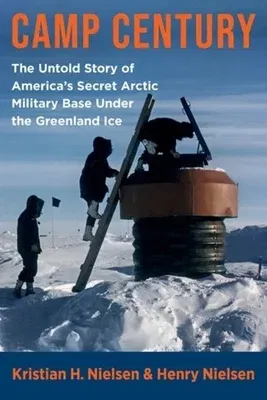At the height of the Cold War, the United States Army secretly began
work on a base embedded deep in the Greenland ice cap: Camp Century.
Officially defined as a scientific research station, this facility had
an undisclosed purpose: to aim up to 600 nuclear warheads, buried in the
ice, at the Soviet Union. In 1966, just six years after the camp was
established, the United States gave up this provocative strategy and
abandoned the base. Despite its brief life, Camp Century has been the
cause of controversies from diplomatic relations between the United
States and its Arctic allies, Denmark and Greenland, to the risks of
radioactive waste abandoned at the site.
This book is the first comprehensive account of the U.S. Army's "city
under the ice." Beginning with the Truman administration's vision of
military superiority in the Arctic and continuing through present-day
concerns over the effects of climate change, Kristian H. Nielsen and
Henry Nielsen unravel the extraordinary history of this clandestine
installation. Drawing on sources including top-secret memos and
never-before-seen photographic evidence, they follow the intertwining
threads of high-level politics, ice-core research, media
representations, daily life beneath the ice, and the specter of
long-buried environmental problems that will one day resurface. Camp
Century reveals a hidden chapter of Cold War history--and why, as the
Greenland ice cap slowly melts, this story is not yet over.

